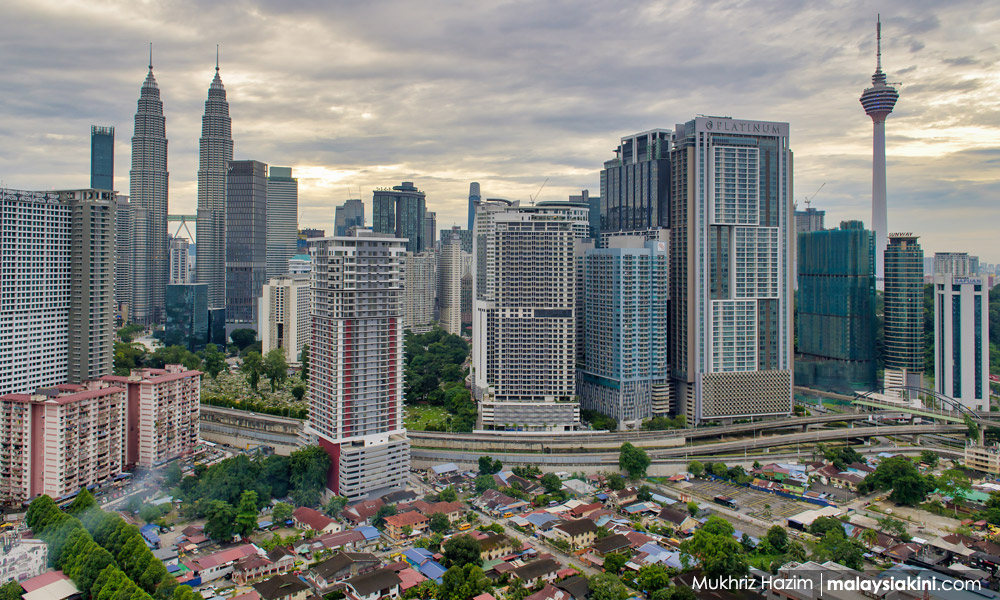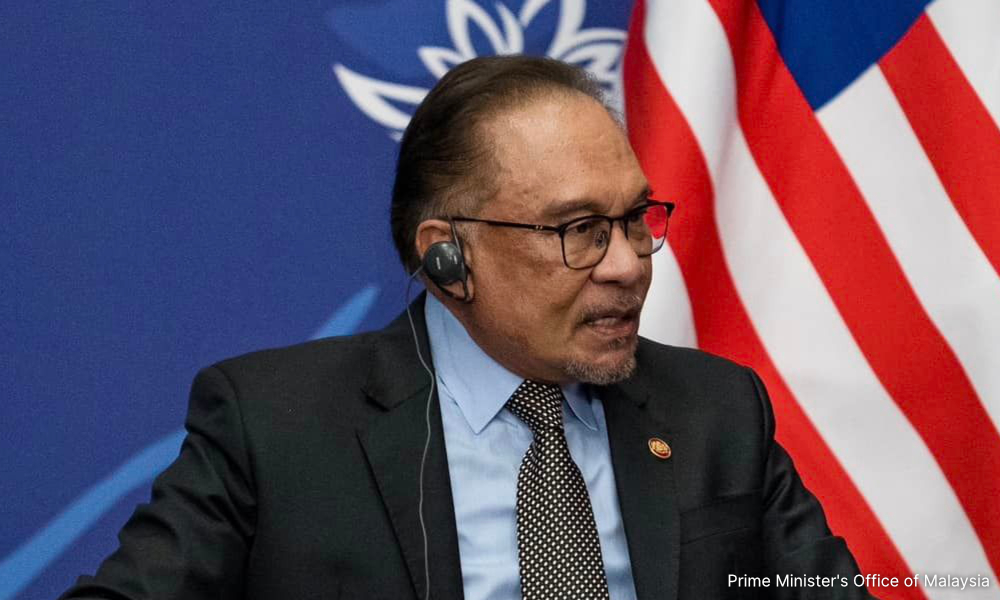Prime Minister Anwar Ibrahim has repeatedly spoken up for social justice and political inclusivity on the international stage.
The most recent was his statement in Vladivostok, Russia on the Israel-Palestine conflict. Likewise, in his honorary doctorate acceptance speech at the University of the Philippines in March of this year.
Back home, however, the “unity” government’s maintenance of affirmative action for the majority sends a completely different message.
The consequence? It undermines the nation’s “operating system” - a metaphor that New York Times columnist, Thomas Friedman, used to explain the innovations and progress of nation-states.
As Israel’s war on Gaza continues, I’ve revisited Friedman’s book “Lexus and the Olive Tree” (1999), not for his centrist leanings (Friedman is Jewish) but for his usage of a computer metaphor to explain events in the Middle East. That metaphor fits well with Malaysia’s predicament.
Friedman likened a country to parts of a computer system: the “hardware” that supports the nation’s economy; the “operating system” that represents the nation’s macroeconomic, social, and cultural policies; the “software” that comprises the rule of law, transparency, accountability, governance, and fair opportunities for all citizens.
The virus
Our national “hardware” looks impressive. The “software” is where our performance falters. Akin to what former prime minister Abdullah Ahmad Badawi described as our “first-class infrastructure, third world mentality”.
Herein lurks the virus: race-based policies in admissions to public universities, employment in the public service sector and state-owned enterprises.

Those familiar with computer systems know that an application software only works if it enables its users to complete specified tasks. Malaysia’s “software” has evidently disempowered its most critical users - the youth population, the Gen Zs, vying for limited places in an ethnic-quota education system.
This has led to bumiputera students over-represented in public universities, and non-Malays in private institutions or twinning programs with foreign universities.
Our national software interoperability - that is, the ability of various systems, platforms, and communities to work together - is faltering, indicative in a recent Merdeka Center survey that underscored the high discontent among Malaysian youths caused by decades of affirmative action that favour the majority. The responses are thus unsurprising.
Nevertheless, the survey does hint at a deterioration in the quality of our national software as reflected in the continued poor performance of Malaysians in the Program for International Student Assessment (Pisa) and Intelligence Quotient (IQ) scores relative to Singapore, Korea and Hong Kong.
(Side note: IQ scores only hint at analytical ability and tend to ignore key factors like emotional intelligence, social skills, and morality, all of which are essential elements of true intelligence. Nevertheless, the figures show where Malaysians are currently placed relative to other Asian countries).
Racial privilege
The original justifications for racial privileges should theoretically become less relevant given that bumiputera now make up 70.4 percent of the population - and growing. In practice, however, the unity government still panders to Malay chauvinism and religiosity. The special position of bumiputera is a never-ending story.
I recall a news report of Anwar’s statement in a lecture at Universiti Malaya in 2018: “I love this country. I want justice for all people in this country. But this cannot diminish my love for my race and culture and my confidence in the principles of Islam.”

Contrast that with his sentiments in a keynote address at the International Young Leaders Summit on Aug 16 in Kuala Lumpur where he posed this challenge: “How many of us, after half or three-quarters of a century of independence, are still shackled by narrow, racist, and chauvinistic ideologies?
“Why do we continue interpreting religions - whether Islam, Christianity, Buddhism, or Hinduism - in ways that exclude others, instead of embracing their universal messages of humanity?"
To an international audience, Anwar shows his inclusive politics like when he mouthed, “We are all one family” in Mandarin at the World Chinese Entrepreneurs Convention in Kuala Lumpur.
Well, a nation state in Mandarin is represented in a combination of two characters - guo (nation) jia (family). In Confucianism, guojia defines the relationship between the state and its people with mutual obligations and duties. The people perform their duties. The state recognises the peoples’ rights as members of the extended family.
When an extended family falls into difficulties, each member is obliged to chip in and help. When a nation state slides into the pits, we are obliged to pull it out from sinking further. Co-prosperity and shared experience hold the family together. Race and religion break them apart.
Various news reports and commentaries have pointed to Anwar’s abandonment of his reformist call sign. His gradual shift towards Umno’s racialised priorities underscores his chameleon streak.
Most recent being his reluctance to ratify the International Convention on the Elimination of All Forms of Racial Discrimination (Icerd) until the people are “well-educated” on Icerd’s implications on race relations in the country, specifically “the special position of the Malays and natives” (Article 153 of the Federal Constitution).
This, despite the Malaysian Bar Association’s conclusion that accession to the Icerd does not violate the Federal Constitution, nor the removal of preferential treatment for the Malays, nor does it undermine Islam as the official religion or Malaysia’s sovereignty.
Looks like we are stuck with the software glitches. Amidst the two-faced politicking, the way to fix the bug is a complete upgrade in the nation’s operating system before the next election in 2027. - Mkini
ERIC LOO is a former journalist and educator in Australia and a journalism trainer in parts of Asia.
The views expressed here are those of the author/contributor and do not necessarily represent the views of MMKtT.




No comments:
Post a Comment
Note: Only a member of this blog may post a comment.